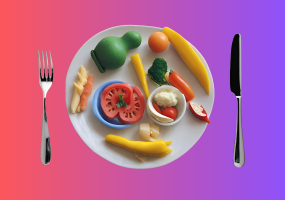Food exports from Victoria, Australia have now hit the $9 billion mark, says a report released by the government.
The latest Food and Fiber Performance report finds that the food exports have risen by nearly $1 billion in the Financial Year 2011-2012. This is around 11 percent more than the revenue brought in during the previous Financial Year.
Dairy and grain make up the majority of food exports. According to Nine MSN News, dairy products brought in $1.9 billion, while grains saw a rise, with the revenue standing at $1.8 billion. The boost in milk production has aided in the rise of exports.
"These results mean almost an extra $1 billion has flowed into the Victorian economy, boosting our primary industries, supporting jobs and bringing benefits to regional and rural communities,'' said Peter Walsh, the agriculture minister, according to The Weekly Times Now.
He further added that the increased exports imply that the Australian state of Victoria has sufficiently recovered from floods and drought plaguing the area.
According to the report, China is the top buyer of food and fiber, with exports worth $1.9 billion. Japan accounts for $816 million of the exports.
"This result shows the remarkable strength and resilience of Victoria's dairy sector, which is an international success story despite the high Australian dollar," Walsh said, according to The Herald Sun. "While rain did impact on the quality of some crops, cereals, oilseeds, processed grains and pulses all recorded significant increases in the value of their exports," he added.
Middle Eastern countries, too, have been reaping the benefits of Victoria's good season. The Australian state has strengthened its ties with the Middle East and North Africa (MENA) with the help of its exports.
Australia has for a long time tried to achieve the status of 'food bowl', especially for Asian and Middle Eastern countries. Its performance over the last few years indicates that it may well achieve its goal.
The country's first National Food Plan was proposed in July this year, with the chief aim being further improvement and expansion of its agriculture sector. Dairy, meat and grain have been receiving more focus as they are considered to be major commodities.
Australia has also been inviting investments in its agriculture sector from other countries. China has already begun investing heavily in the country's agri-businesses and other countries are likely to follow soon. The agriculture ministry also plans to introduce genetically modified food crops, but will defer to the wishes of the farmer, should any opposition arise.









